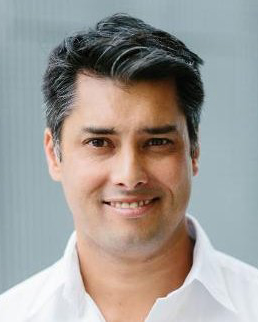
Interview with Mohamed Abdel-Mottaleb, CEO of Trendak, a social media intelligence company in Egypt
Hi Mohamed, what is your background and what is included in your current role at Trendak?
My background is in nanotechnology; the idea of big data and collecting information regarding nanotechnology in the Middle East is what started me in this field. That eventually got me working with a team to conduct Arabic text analysis and collecting information. We moved from there step by step into social media in the end of 2011.
I am responsible for the day-to-day operations and working with the team to set the strategy for the company and for the products that we sell. I help with sales when the size of the deal allows for me to move around. In addition, I am responsible for looking at the competition and doing business development as well.
What differs Trendak from other social media intelligence companies in Egypt and the MENA-region?
I believe our technology is better than that of many of the competitors we have. Our accuracy in analysis and range of channels that we monitor and analyze is bigger than better than our competitors.
How does your set-up of employees look like and do you work with partners in different parts of the world?
We have 31 employees, 40 percent of which are female. We have a young workforce, with the average age being 31; in fact, the majority of our staff are under 30. Most of the team has a technology background either in software engineering or in data science. The business team has a lot of experience in sales and in running companies. Collectively, we have 120 years of experience between the top management and the sales and the business development team.
We have technology partners in other parts of the world. We use DataSift, and have partnered with Gnip for the last two years. We also have resellers in Europe and in other parts of the Middle East.
Which type of companies benefit from your services?
Marketing companies, fast-moving consumer goods (FMCGs) and media channels. When Ramadan finished recently we did a lot of analysis on the viewership, the actors and television shows that happened during that time, and what the response of the people during the month of Ramadan, a high season for us, was.
What are your greatest challenges ahead at Trendak when it comes to developing your offer?
A lot of analysis is required to understand the clientele of our clients. FMCGs or brands need to understand their clientele more, but there are restrictions on understanding that, even in aggregate form. We are happy with the PYLON offering from Facebook to segment the audience we are looking at, yet many other channels aren’t that easy due to restrictions on access to data.
What other challenges do you face in your market?
The biggest challenge we sometimes have with clients in the Middle East, especially international brands, is that they come with a set of specific providers for analysis that would work in Europe or in the United States or Canada, but they don’t have the capabilities to understand the Arabic market. Unfortunately, international brands have worldwide contracts with these companies, so the competition for us with international is quite strong. Many local companies face the problem in the region that they cannot have deep insights, but they are tied into long-term contracts with their providers, which is a big challenge for an area like ours.
Do you have any specific plans to expand your business in the near future, like new markets or products?
Yes we are working very aggressively to enter the worldwide market, specifically Europe. Our biggest advantage is the Arabic language; our accuracy is quite high, and that is where we excel. We want to offer this to countries with a high Arabic speaking audience.
We want to develop, and started developing, offerings in languages that have not gotten enough attention from other companies, such as languages in Africa and the Far East.
How did the Arab Spring change the conception of social media in Egypt and the MENA-region?
I think the effect of the Arab Spring was not only on Africa and the Middle East region, but worldwide. It was one of first times that social media enabled and concretely demonstrated its influence on real life and on the public. Until that point, most of the world was talking about it as a virtual world, and a small sample of the real life audience. The Arab Spring showed that not to be true, that it’s more penetrated, and is a powerful tool to communicate. One of social media’s most important features is being able to provide alternative news sources in almost near real time. This is a tremendous power, and the Arab Spring made everyone understand the importance and effect of social media.
Which social platforms are currently most important for your customers?
This depends on the region of the country you’re talking about; Twitter and Instagram in the Gulf area, Facebook in Africa. We believe that Snapchat and Telegram are also becoming much more important, especially in the regions where the young population is a significant part of the entire population, like in Egypt, where 40 percent of the population is under 25.
Which social platform do you see having the most potential in the future?
That’s not a simple question, but I believe Instagram has a bright future. I believe that one of the two, Snapchat or Telegram, will grow more and more.
Are there any social platforms that are closed today that you would be interested in tapping into for monitoring that would benefit your customers?
Snapchat, as the amount of information that we can access is not that available.
What kind of data or media that you do not have monitoring on today, can be interesting in the future?
Photos, especially photos on Facebook, as the amount of information provided with the photos is not enough. Having access to more of that information would be very interesting for us.
Are there specific or typical needs in the Arabic market for social media monitoring that you think differs from rest of the world in general?
Understanding of the Arabic language and the level of detail you need to be able to understand the text is different from other parts of the world, and it’s not that simple to automate the understanding of this language. Meta data on that information is not sufficient on its own to provide deep insights that clients would like to see.
How do you think the media monitoring and social intelligence industry will change in the next five years?
I think there will be more dependence on it, which means that the accuracy and speed of analysis will increase. The depth of analysis will also increase and insights drawn from it will be instrumental for industries. Again, in an area where the population is quite young, social media will play a more important role than in other parts of the world.
By Renata Ilitsky


